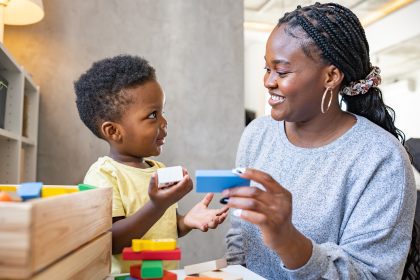As parents, one of our most crucial roles is guiding our children towards responsible and independent decision-making. This journey includes helping them take ownership of their health, safety, and relationships, including dating. By instilling these values early, we set the foundation for a healthy and balanced life, ensuring our children are equipped to navigate life’s challenges wisely.
Health: Building a strong foundation
Encouraging children to take responsibility for their health involves both physical and mental well-being. Here’s how to foster this responsibility:
Promote healthy habits
- Involve children in meal planning and preparation
- Make physical activity a fun family affair
- Establish consistent sleep schedules
- Teach the importance of personal hygiene
Nurture mental health
- Encourage open discussions about feelings and emotions
- Introduce simple stress-management techniques like deep breathing or mindfulness
- Normalize seeking help when feeling overwhelmed or anxious
Demystify healthcare
- Frame doctor and dentist visits as routine maintenance
- Involve children in tracking their own check-ups
- Discuss the importance of preventive care and how it relates to long-term health
By framing health as a personal responsibility, children learn to view well-being as something within their control. This empowerment can lead to better health choices throughout their lives.
Safety: Creating awareness of surroundings
Teaching safety goes beyond avoiding physical harm. It includes understanding personal boundaries and navigating the digital world responsibly.
Foster open communication
- Create a judgment-free zone for sharing concerns
- Respond calmly to safety questions or worries
- Regularly check in about experiences at school, with friends, and online
Establish clear boundaries
- Teach the importance of personal space and respecting others’ boundaries
- Empower children to say “no” when they feel uncomfortable
- Model respect for others’ boundaries in your own interactions
Navigate the digital landscape
- Discuss online privacy and responsible internet use
- Teach recognition of cyberbullying and online threats
- Encourage open dialogue about online experiences and concerns
Practical safety skills
- Teach basic first aid appropriate for their age
- Practice emergency scenarios (e.g., fire drills, what to do if lost)
- Discuss street safety and awareness of surroundings
By emphasizing safety as a personal responsibility, children become more aware of their environment and potential risks, both in the physical world and online.
Dating: Teaching responsible relationship skills
As children grow into teenagers, understanding the foundations of healthy relationships becomes crucial. This knowledge shapes their approach to friendships and, eventually, romantic partnerships.
Teach consent and boundaries
- Explain that consent applies to all types of interactions, not just physical
- Emphasize the right to refuse any uncomfortable situation
- Discuss the importance of respecting others’ boundaries in relationships
Encourage effective communication
- Model open and honest expression of feelings
- Teach active listening skills
- Discuss healthy ways to address disagreements and conflicts
Identify healthy vs. unhealthy relationships
- Discuss qualities of positive friendships and partnerships
- Help recognize red flags in relationships (e.g., jealousy, control, manipulation)
- Emphasize self-respect and mutual respect in all relationships
Dating safety
- Discuss safe dating practices (e.g., meeting in public places, informing others of plans)
- Talk about the risks of sharing personal information or intimate photos
- Encourage open communication about dating experiences and concerns
By framing relationships as a shared responsibility, children learn to value equality, respect, and safety in their interactions.
Practical approaches to fostering responsibility
Translating these lessons into real-life situations helps children internalize responsible behaviors:
Lead by example
- Demonstrate self-care through your own actions
- Show respect for others’ boundaries
- Model responsible decision-making in your relationships
Provide decision-making opportunities
- Allow age-appropriate choices in daily life
- Involve children in family decision-making processes
- Encourage problem-solving skills by asking for their input on solutions
Discuss consequences
- Help children understand the impact of their choices
- Frame mistakes as learning opportunities
- Celebrate responsible decisions and their positive outcomes
Gradual independence
- Increase responsibilities as children grow older
- Allow children to experience natural consequences of their actions (when safe to do so)
- Provide guidance and support while encouraging independent thinking
The ongoing journey to responsibility
Fostering responsibility in children for their health, safety, and relationships is an ongoing process that requires patience, consistency, and open communication. By empowering children to take charge in these areas, we equip them with invaluable life skills.
Remember, the goal isn’t perfection, but progress. Each step towards greater responsibility is a victory, preparing children for the complexities of adulthood. By nurturing these skills early, we set the stage for our children to lead fulfilling, balanced, and responsible lives.
As parents, our role is to guide, support, and gradually step back, allowing our children to develop their own sense of responsibility. This journey may have its challenges, but the reward is raising confident, capable individuals ready to face the world with wisdom and care.
This story was created using AI technology.
















